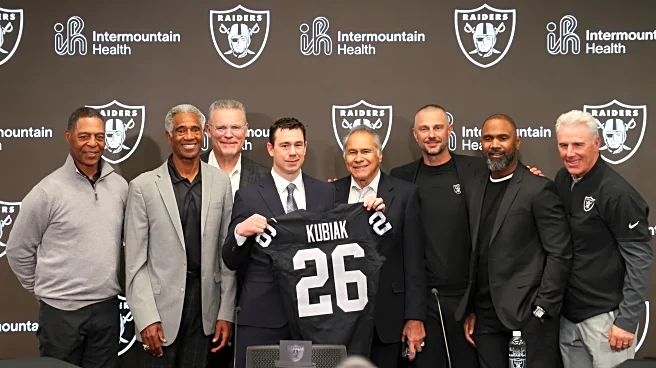What's Happening?
Trey Yesavage, a rookie pitcher for the Toronto Blue Jays, has publicly condemned the negative attacks directed at his family following his standout performance against the New York Yankees in the American League Division Series. Yesavage, who delivered an impressive 11-strikeout game, expressed his dismay at the unwarranted criticism his loved ones have faced due to his on-field success. During a press conference ahead of the American League Championship Series against the Seattle Mariners, Yesavage emphasized that his family should not be subjected to negativity stemming from his professional achievements. He urged individuals to direct any criticism towards him rather than his family members, who have no involvement in his baseball career. Yesavage's comments highlight the challenges athletes face with public scrutiny and the impact it can have on their personal lives.
Why It's Important?
The situation underscores the broader issue of how public figures, particularly athletes, are often subjected to intense scrutiny that can spill over into their personal lives. Yesavage's experience is a reminder of the potential emotional toll that fame can have on athletes and their families. This incident also highlights the growing concern over the role of social media in amplifying negative commentary and the need for greater awareness and responsibility among fans. The Blue Jays' management has supported Yesavage's stance, recognizing the importance of protecting players and their families from undue criticism. This development may prompt sports organizations to consider implementing measures to safeguard athletes' personal lives from public intrusion.
What's Next?
As Yesavage prepares for Game 2 of the AL Championship Series, the focus will be on his performance and how he handles the pressure both on and off the field. The Blue Jays' management may explore additional support systems for players dealing with public scrutiny. Fans and media outlets might also reflect on their role in maintaining respectful discourse around athletes and their families. The incident could lead to broader discussions within the sports community about the ethical responsibilities of fans and the impact of social media on athletes' mental health.
Beyond the Headlines
This situation raises ethical questions about the boundaries of public commentary and the responsibility of fans to maintain respectful interactions with athletes. It also highlights the cultural shift towards greater awareness of mental health issues in sports, encouraging organizations to prioritize the well-being of their players. The incident may contribute to long-term changes in how sports figures are perceived and treated by the public, fostering a more supportive environment for athletes.











